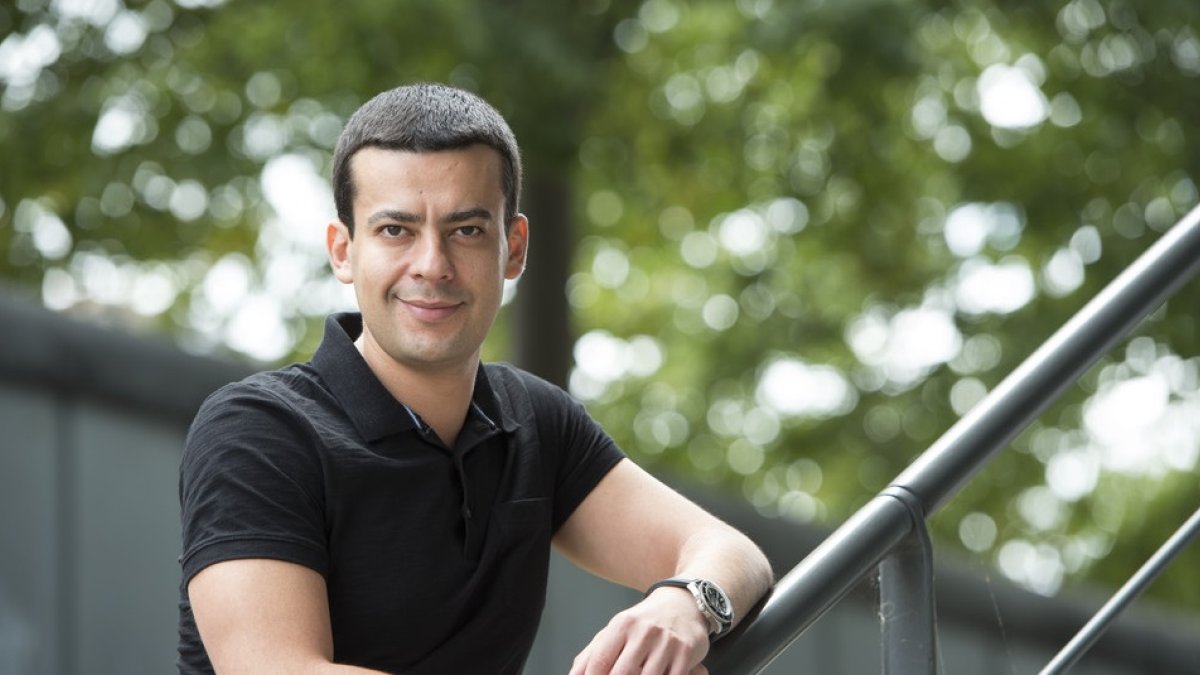Cyber security expert becomes Head of Department
Dr Mark Manulis, Deputy Director of the Surrey Centre for Cyber Security, took over as Head of the Department of Computer Science on 1 September. We caught up with him to find out about his background and his vision for the Department.

Dr Mark Manulis
Why did you decide to come to the University of Surrey?
I was attracted to the University’s Department of Computer Science because it had two strong research groups working on several aspects of cyber security and formal verification, and was looking to build up its expertise in applied cryptography. My research was a good fit and opened links for collaborations with other colleagues.
I joined the Department in 2012 as Senior Lecturer. In 2014 Surrey was recognised by the UK government as Academic Centre of Excellence for Cyber Security Research and I became Deputy Director of its newly established Surrey Centre for Cyber Security (SCCS). I was then appointed as Head of Department and promoted to Reader in 2020.
What were you doing before and what led you into the area of cyber security?
I was Assistant Professor at TU Darmstadt in Germany, where I led the Cryptographic Protocols Group and was Principal Investigator in a research centre that later became Germany’s National Centre for Applied Cybersecurity (ATHENE).
My interest in cyber security and cryptography started during my study of Computer Science at TU Braunschweig in Germany. Not many universities covered cyber security and cryptography at that time, but I found the field fascinating. This led me to pursue research in applied cryptography and privacy technologies.
What are the best things about Surrey’s Department of Computer Science?
We are a lively, dynamic and friendly Department which actively encourages students to get involved in research and address real industry challenges. The Department recently became part of the School of Computer Science and Electronic Engineering, which facilitates greater collaboration with experts from other disciplines in areas like AI and blockchain.
We have very strong and focused research activities in our Nature Inspired Computing and Engineering (NICE) group and SCCS (which is formed of our Secure Systems group and the recently established Distributed and Networked Systems group).
Earlier this year the Department welcomed five new academics who’ve brought an incredible range of experience across our research groups, with expertise in areas like internet data science, nature-inspired computing, bioinformatics, AI, and formal verification.
On the teaching side, more students are joining the Department than ever before, with a cohort of over 700 across our undergraduate and masters courses in 2020.
"Our facilities are definitely a stand-out feature of the Department. We recently built a 200-seater computer lab which deploys cloud computing technology, along with six open access PC labs, five dedicated specialist labs running a range of software and an OpenNebula server which provides our own ‘cloud’ environment. We continually buy specialised equipment for students to use in their final year projects, such as NAO robots, Parrot drones, and Oculus Rift VR sets."
What is your vision for the Department in terms of teaching and research?
We are always looking for new ways to offer a more engaging and interactive experience for students using technology, and this is something I will continue to explore. We are developing innovative online assessment tools, for example, and have also produced short recorded lectures and lab videos to help students with remote studies, both of which have been particularly valuable during the Covid-19 pandemic.
I would like to build on the success of our highly popular MSc in Data Science, which we introduced in 2019. This course includes an optional year-long industry placement which draws on the Department’s excellent industrial links. From next year we will be offering a similar placement track for our long-running and GCHQ/NCSC-accredited MSc in Information Security.
We have recently introduced a new Centre for Doctoral Training (CDT) in Future Connected Technologies, sponsored by the European Institute of Innovation and Technology (EIT), which will see PhD students working on applied research projects and real business challenges. We’re now working with industrial partners to develop these opportunities, which is very exciting.
In terms of research, my vision is to diversify our research funding portfolio, continue to generate world class research and impact through applied research projects and our involvement in standardisation, and provide strong support for Early Career Researchers. The key areas of research will be around cyber security, AI, and distributed/networked systems. We are already very strong and visible on the international level and are looking to expand our engagement with international research community, alongside developing new industry collaborations in the UK and abroad.
Find out more about Dr Mark Manulis on his academic profile page.
Discover our courses in computer science.
